Judi Lynn
Judi Lynn's JournalOver 100 Ancient Structures Just Uncovered in the Andes' Forbidden Cloud Forest -- A Hidden Civilization Unfolds
Buried deep in Peru’s cloud forest, a long-forgotten site is rewriting the story of a vanished culture. Researchers uncovered something far larger than anyone expected.
Juliette Dubois
Published on June 7, 2025
Read : 3 min

The Abiseo River National Park. Credit: WMF/Heinz Plenge Pardo | The Daily Galaxy --Great Discoveries Channel
High above sea level in the remote northern Andes, an extraordinary discovery has brought new clarity to one of Peru’s most mysterious archaeological landscapes. Hidden for centuries beneath dense vegetation in the Río Abiseo National Park, more than 100 previously unrecorded structures have been uncovered at the site of Gran Pajatén, offering rare insight into the elusive Chachapoya civilization.
The findings, announced in May by the World Monuments Fund (WMF), are the most significant at the site since the 1980s, when only 26 structures had been documented. With this new discovery, archaeologists are beginning to reevaluate the scale and sophistication of a society that once thrived along the eastern flanks of the Andes, between 6,500 and 9,800 feet above sea level.
A City Emerges From the Trees
Gran Pajatén lies within the boundaries of Río Abiseo National Park, a UNESCO Mixed World Heritage site known for its rich biodiversity and archaeological heritage. The site, first revealed to researchers in the 1960s, was long believed to be relatively modest in size. Now, newly identified buildings—among them ceremonial platforms, temple foundations, perimeter walls and staircases—suggest a far more expansive and organized settlement.
The structures are scattered across a steep forested slope, appearing to follow a deliberate urban plan consistent with Chachapoya and later Inca influence. Archaeologists say the arrangement of the site, combined with the discovery of nearby roads linking Gran Pajatén to other archaeological zones such as La Playa, Papayas, and Los Pinchudos, points to a well-connected regional network.
“This discovery radically expands our understanding of Gran Pajatén and raises new questions about the site’s role in the Chachapoya world,” said Juan Pablo de la Puente Brunke, Executive Director of WMF Peru. “Evidence now confirms that it is not an isolated complex but part of an articulated network of pre-Hispanic settlements from different periods.”
More:
https://dailygalaxy.com/2025/06/over-100-ancient-structures-just-uncovered-in-the-andes-forbidden-cloud-forest-a-hidden-civilization-unfolds/
- click link for images of this site from Google images -
https://tinyurl.com/a7ar3jtm
~ ~ ~

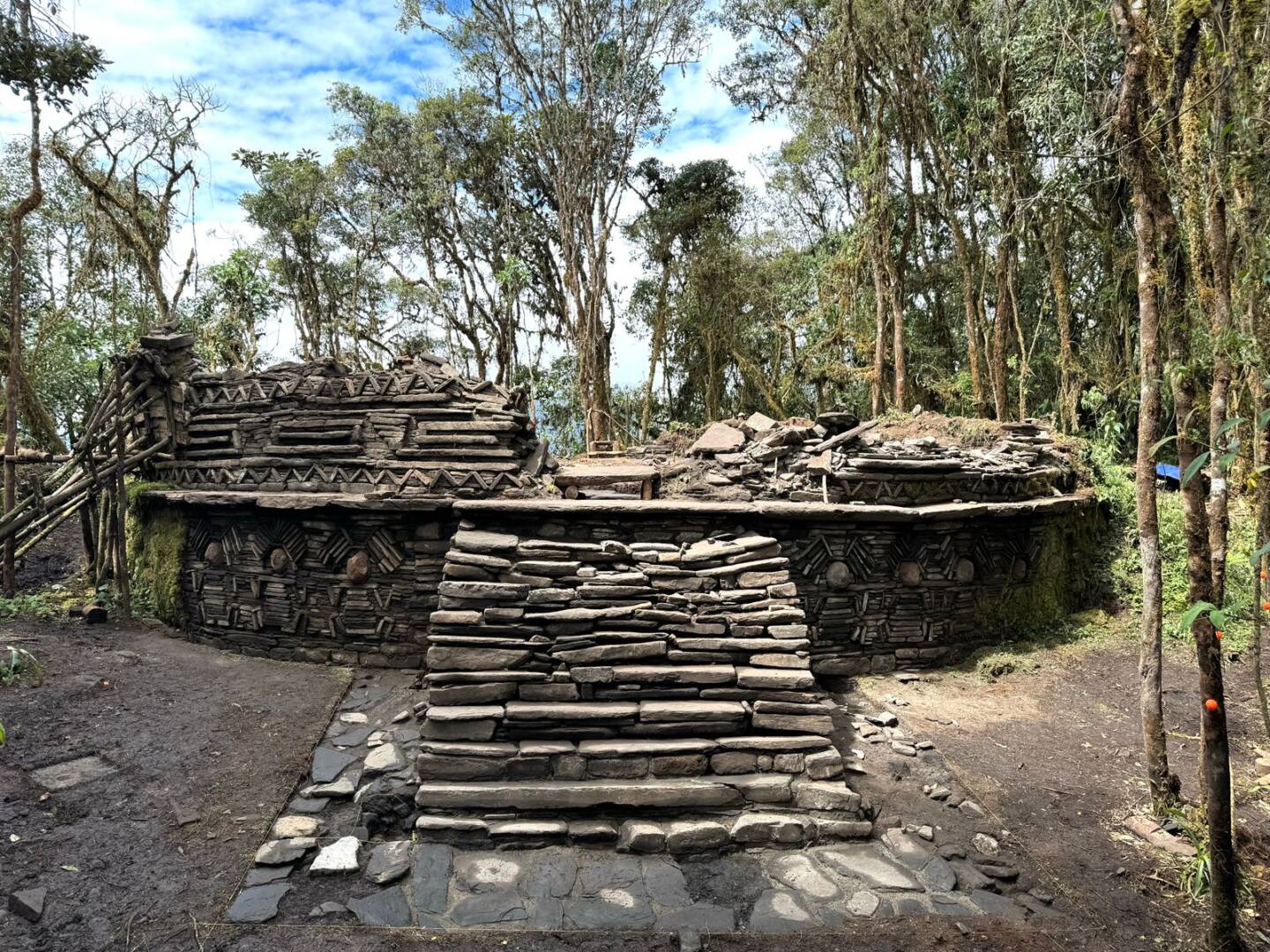

ETC.
~ ~ ~
Researchers uncover over 100 new structures at Gran Pajatén site
Researchers working in Peru have discovered more than 100 previously unknown structures at the Gran Pajatén archaeological complex, significantly expanding the 26 buildings known since the 1980s and revealing that the Chachapoya civilization, known as the "people of the cloud forest," lived at the site from at least the 14th century.
More:
https://www.perplexity.ai/page/researchers-uncover-over-100-n-W72uefhPRVO1rIRzaYixJg
Uruguay's Jos Mujica, world's 'poorest president', dies
9 hours ago
Gerardo Lissardy
BBC News Mundo
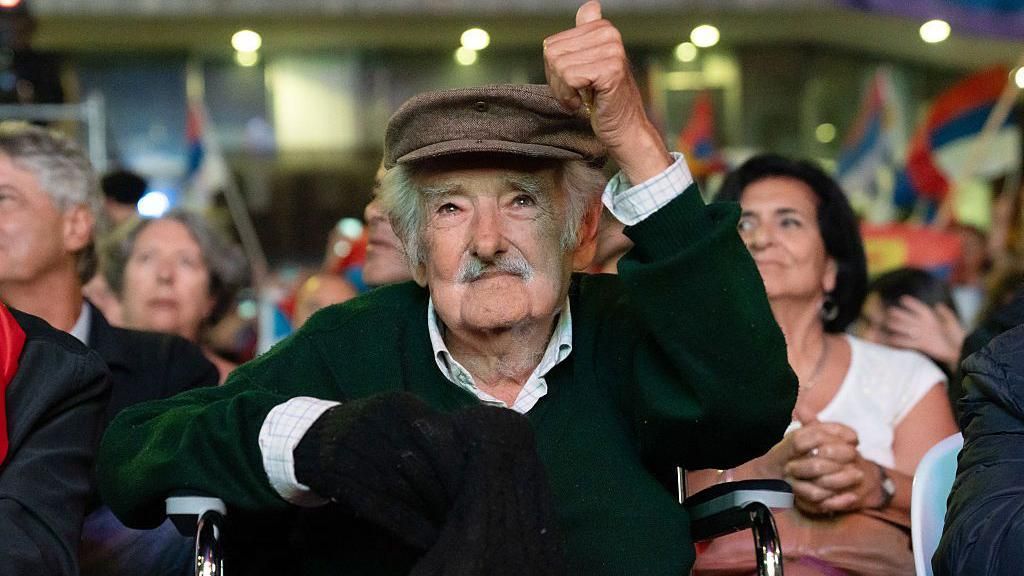
AFP/Getty Images
Former Uruguayan President José Mujica, known as "Pepe", has died at the age of 89.
The ex-guerrilla who governed Uruguay from 2010 to 2015 was known as the world's "poorest president" because of his modest lifestyle.
Current President Yamandú Orsi announced his predecessor's death on X, writing: "thank you for everything you gave us and for your deep love for your people."
The politician's cause of death is not known but he had been suffering from oesophageal cancer.
Because of the simple way he lived as president, his criticism of consumerism and the social reforms he promoted - which, among other things, meant Uruguay became the first country to legalise the recreational use of marijuana - Mujica became a well-known political figure in Latin America and beyond.
His global popularity is unusual for a president of Uruguay, a country with just 3.4 million inhabitants where his legacy has also generated some controversy.
In fact, even though many tended to see Mujica as someone outside the political class, that was not the case.
More:
https://www.bbc.com/news/articles/c0j71402z58o



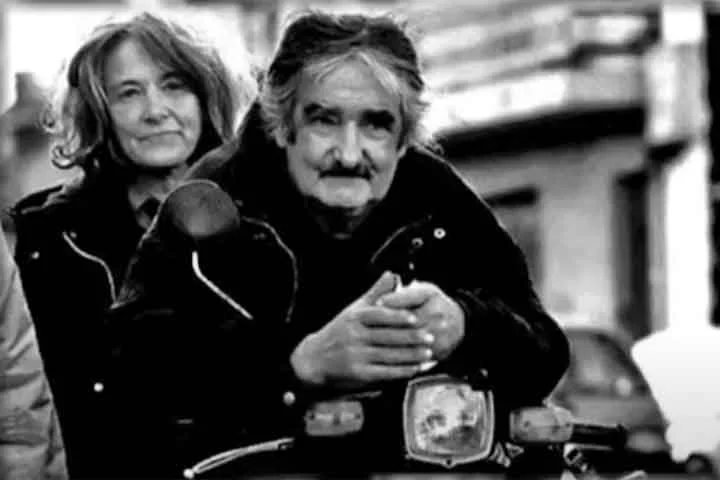
Trump Ally Bukele Reportedly Set to Arrest Journalists Who Revealed His Secret Pact With Gangs
One critic said the Salvadoran president "wants to silence" the acclaimed digital news site El Faro "because they're shattering the myths of the Bukele administration."
Brett Wilkins
May 05, 2025
An internationally acclaimed digital news outlet in El Salvador said Monday that the administration of Salvadoran President Nayib Bukele is preparing to arrest a number of its journalists following the publication of an interview with two former gang leaders who shed new light on a power-sharing agreement with the U.S.-backed leader and self-described "world's coolest dictator."
"A reliable source in El Salvador told El Faro that the Bukele-controlled Attorney General's Office is preparing at least seven arrest warrants for members of El Faro," the outlet reported. "The source reached out following the publication of an interview with two former leaders of the 18th Street Revolucionarios on Bukele's yearslong relationship to gangs."
"If carried out, the warrants are the first time in decades that prosecutors seek to press charges against individual journalists for their journalistic labors," El Faro added.
Bukele responded to the interview in a Friday evening post on the social media site X that read in part, "It's clear that a country at peace, without deaths, without extortion, without bloodshed, without corpses every day, without mothers mourning their children, is not profitable for human rights NGOs, nor for the globalist media, nor for the elites, nor for [George] Soros."
While the pact between Bukele and gang leaders is well-known in El Salvador, El Faro—which has long been a thorn in the president's side—was the first media outlet to air video of gangsters acknowledging the agreement.
More:
https://www.commondreams.org/news/el-faro-warrants
- click link for image. Note Trump dragged out his envisioned new airplane model on the table for show and tell time. Jesus. -
https://assets.bwbx.io/images/users/iqjWHBFdfxIU/ihqe9tchcWnM/v1/-1x-1.webp


How the Biden administration helped avoid a coup in Guatemala
By Mary Beth Sheridan and Nic Wirtz
January 12, 2024 at 9:00 a.m. EST
- click link for image -
https://d1fc2293h78avp.archive.is/1NPgV/a7dba71384c1a9ba665f31f197dfa8bd569cebbc.avif
Guatemalan President-elect Bernardo Arévalo makes an appearance at a demonstration in support of his taking office at the Human Rights Plaza in Guatemala City on Sept. 18, 2023. (Luis Vargas/Anadolu Agency via Getty Images)
After a reform-minded professor won the presidency of Guatemala — one of the Western Hemisphere’s most notoriously corrupt countries — governments around the world watched the fallout with alarm.
Guatemalan authorities seized ballot boxes on dubious claims of fraud. They tried to dissolve the party of the winner, Bernardo Arévalo, and investigate him criminally. With months to go before he took office, the beleaguered president-elect warned of a “slow-motion coup.”
On Sunday, Arévalo is to be sworn in, in what could be a turning point for a nation that’s hemorrhaged migrants to the United States. He’s reaching Inauguration Day in large part because of the determination of Guatemalan citizens fed up with corruption. But U.S. diplomats played a key role, in one of the Biden administration’s most aggressive campaigns to shore up democracy in the hemisphere.
Behind the scenes were career U.S. bureaucrats with decades of experience in Latin America — the sort of briefcase-toting professionals who melt into the crowds on the D.C. Metro. They targeted Guatemalan politicians and influential business people with a blizzard of sanctions, stern public statements and quiet arm-twisting.
“I don’t think we would have made it if the U.S. didn’t get as involved as they did,” said Dionisio Gutiérrez, one of Guatemala’s richest business executives and an outspoken critic of corruption.
More:
https://archive.is/20240114141842/https://www.washingtonpost.com/world/2024/01/12/bernardo-arevalo-guatemala-inauguration-biden/#selection-439.0-565.196
Milei administration intensifies offensive against press
ARGENTINA | Yesterday 10:23
President Javier Milei’s government is presenting the media and journalists to voters as the “new caste” and has decided to ramp up its attacks on reporters; New attack attempts to associate them with “lies” and “defamation,” with one online ally even calling for one journalist to be jailed.
Pablo Varela
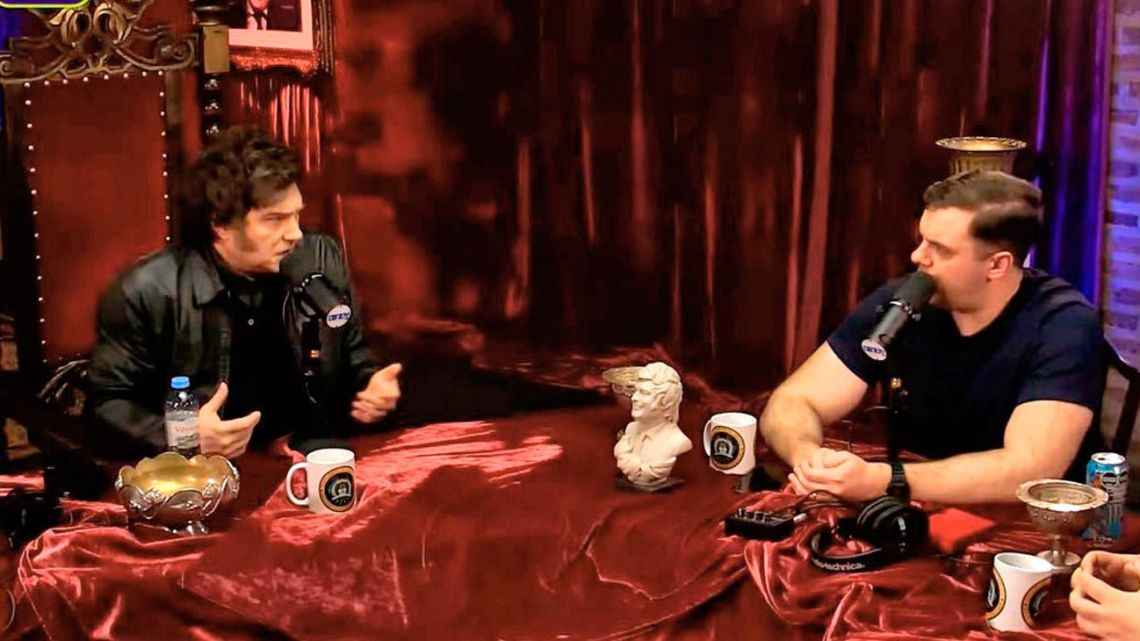
President Javier Milei appears on a streaming programme alongside Daniel 'Gordo Dan' Parisini. | Screenshot
President Javier Milei’s government and the Casa Rosada are seeking to shift the focus. The La Libertad Avanza leader’s attack on the press is not just intimidation — they form part of a broader strategy and narrative. The intensity shown this past week by Argentina’s President towards the press is aimed at creating “a new caste” to confront.
It is, in effect, a move intended to sideline the opposition’s political leadership as the government’s natural enemy. In doing so, Milei directs his criticism and accusations at journalists and media outlets, avoiding direct confrontation with leaders from other political forces.
The strategy is thought to have been crafted by the government’s all-purpose star adviser, Santiago Caputo. Some observers suggest the manoeuvre is “no stroke of genius” but rather a tactic already used by other leaders with similar profiles to Milei. Examples include Viktor Orbán, the prime minister of Hungary; Giorgia Meloni, the prime minister of Italy; and Jair Bolsonaro, former president of Brazil. Not to mention Milei’s idol, US President Donald Trump, who also employs this approach.
There are voices within the libertarian movement who attribute the move to a survey Santiago Caputo is said to have commissioned back in January, which asked respondents whether they would be willing to live “in a country with an authoritarian government that delivers good economic results.”
More:
https://www.batimes.com.ar/news/argentina/milei-administration-intensifies-offensive-against-press.phtml
Allegations emerge that El Salvador's President Bukele made secret deals with gangs
Bukele’s administration denies accusations, highlights government's crackdown on gangs
Sinan Dogan and Zehra Nur Celik |
04.05.2025 - Update : 04.05.2025
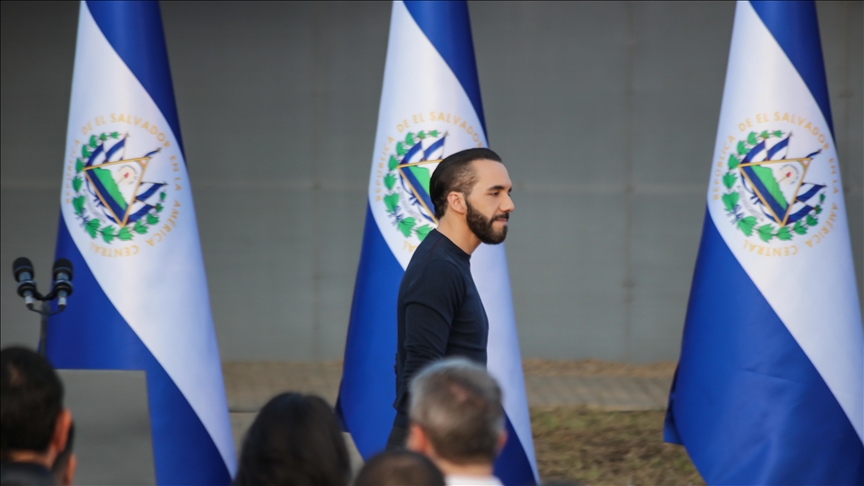
BOGOTA / ANKARA
Allegations that El Salvador’s President Nayib Bukele made secret deals with criminal gangs have sparked controversy in the country.
Carlos Cartagena Lopez, also known as “Charli de IVU,” one of the leaders of the Barrio 18 gang, claimed in an interview with El Faro newspaper that Bukele struck deals with gangs to further his political career.
According to Cartagena, the alleged agreement began during Bukele’s tenure as the mayor of San Salvador in 2014 and continued until he won the presidential election.
Elmer Canales Rivera, also known as “El Crook,” a leader of the MS-13 (Mara Salvatrucha) gang, echoed similar claims in statements to El Faro, asserting that they supported Bukele.
More:
https://www.aa.com.tr/en/americas/allegations-emerge-that-el-salvadors-president-bukele-made-secret-deals-with-gangs/3556460
(That view was often discussed years ago!)
Geography has given the US unrivaled security. Trump is destroying it
Gil Barndollar and Rajan Menon
The US’s greatest strategic advantage is its friendly neighbors. But its ties to Canada and Mexico are being undermined
Sun 4 May 2025 07.00 EDT
The secret to American power and pre-eminence was best summed up more than a century ago.
America, observed Jean Jules Jusserand, France’s ambassador to the United States during the first world war, “is blessed among the nations”. To the north and south were friendly and militarily weak neighbors; “on the east, fish, and the west, fish”. The United States was and is both a continental power and, in strategic terms, an island – with all the security those gifts of geography provide. No world power has ever been as fortunate. This unique physical security is the real American exceptionalism.
Americans take this providential geography for granted: their country’s wars are always away games, and their neighbors are trading partners and weekend getaway destinations, not rivals or enemies. The ability of the United States to project power around the globe depends on technology and logistics, but it rests ultimately on the foundation of secure borders and friendly neighbors. But that may not be the case much longer. In threatening war with both Canada and Mexico, Donald Trump is obliterating America’s greatest strategic advantage.
In normal times, one would be hard-pressed to find a pair of friendlier nations than the United States and Canada. Canadians and Americans share a common language (aside from the Québécois), sports leagues, $683bn in trade, and the world’s longest undefended border, more than 5,000 miles (8,000km) long. Americans and Canadians have fought side by side in both world wars, as well as in Korea and Afghanistan.
Trump’s coveting of Canada is easy to mock and dismiss. Since returning to office in January, he has said repeatedly that he wants to make Canada the 51st state and taken to calling former Canadian prime minister Justin Trudeau “Governor Trudeau.” In what could be a satire of the post-9/11 ambitions of some American neoconservatives, Trump called the border with Canada “an artificial line” that “makes no sense”.
More:
https://www.theguardian.com/commentisfree/2025/may/04/trump-us-canada-mexico-relationship
Researchers Accidentally Discovered an Ancient Megacity in a Mexican Jungle
Lidar technology is revealing that the Mayan civilization was more complex and interconnected than previously thought.
Katarina Hall | From the May 2025 issue
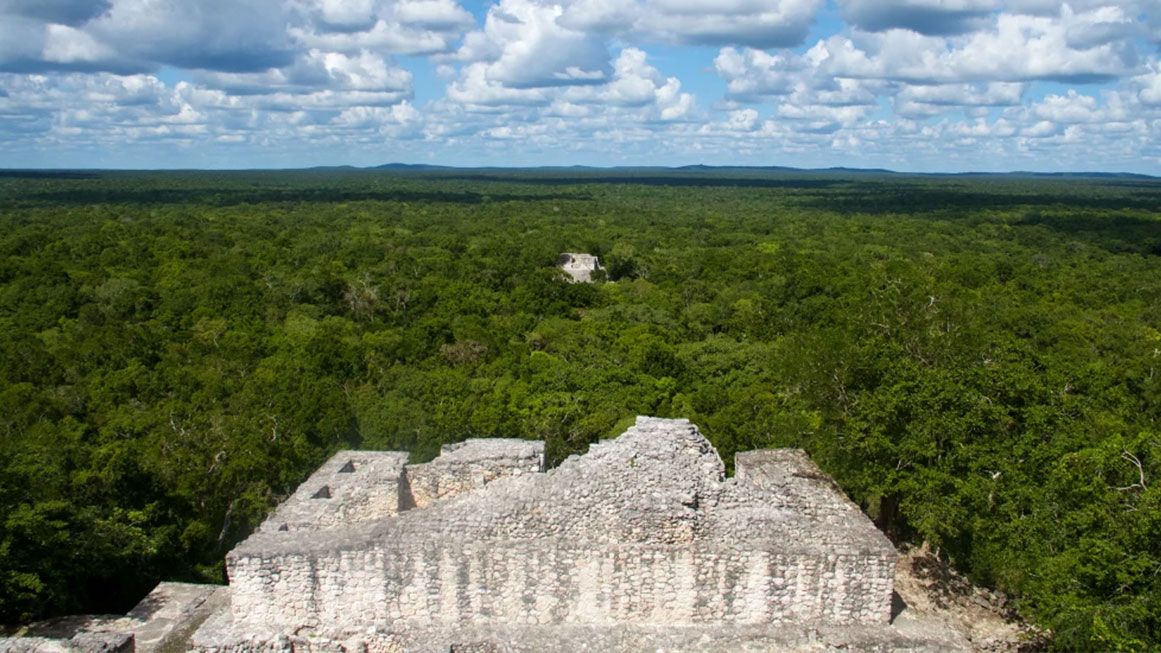
(Photo: Maya archaeological site in Calakmul, Mexico; Philip Dumas/Getty)
In 2024, a Mayan megacity was discovered in Campeche, Mexico. Swallowed by the rainforest, this lost urban center contained pyramids, plazas, amphitheaters, and highways. But this discovery wasn't made by a team of seasoned explorers hacking through the rainforest with machetes. It was made by a Ph.D. student. And he found it by accident.
"I was on something like page 16 of a Google search and found a laser survey done by a Mexican organization for environmental monitoring," Luke Auld-Thomas, who is pursuing his doctorate at Tulane University, explained to the BBC in October. That overlooked, decade-old survey contained groundbreaking information hidden in plain sight.
The survey used light detection and ranging (lidar) technology, a remote-sensing method that sends thousands of laser pulses from an aircraft to map objects buried beneath vegetation. The system measures how long it takes for the signals to bounce back, creating a detailed 3D image of the landscape.
Now named Valeriana, this lost metropolis is believed to be one of the densest Mayan cities ever discovered. At its peak (between 740 and 850 A.D.), it may have housed anywhere from 30,000 to 50,000 people—more than the region's population today. Over 6,000 buildings were identified, ranging from homes to towering pyramids. "The larger of Valeriana's two monumental precincts has all the hallmarks of a classic Mayan political capital: enclosed plazas connected by a broad causeway; temple pyramids; a ball court; a reservoir formed by damming an arroyo (a seasonal watercourse)," said Auld-Thomas in findings published in the journal Antiquity.
More:
https://reason.com/2025/04/27/lost-cities-in-the-jungle/
When the Mara Salvatrucha Defeated Trump on Long Island
Monday, April 21, 2025
Óscar Martínez
El Faro English has translated this photo essay, published in Spanish in November 2017, as MS-13 returns to the forefront of U.S. politics in Donald Trump’s second term. Read the accompanying photo essay: A Funeral March from El Salvador to Long Island.
“Why did you come to Long Island?”
It’s June 4, 2017. We are at a Subway restaurant, far from the center of any of these small towns inhabited mostly by migrants of Latin American origin, many of them undocumented. Forty minutes away is the capital of the world, New York City, but these are the suburbs, the outskirts, the periphery. We are on the border between North Merrick and Uniondale, commuter towns where the main attractions are shopping malls and traveling fairs.
The person who answers my question is an 18-year-old Salvadoran boy, the son of a tortilla maker. He was born in a canton called El Niño, in a hamlet called La Ceiba, on the slopes of the Chaparrastique volcano, in the scorching-hot department of San Miguel.
“My mom and sister were already here. My dad died when I was in El Salvador. He was drinking when a car ran him over. I didn’t live with him, but with an aunt. They hit us all the same; my aunt had four other daughters who lived in the same house. They beat us all.”
He is a wiry young man. He still has the body of a campesino: bony, with knotted muscles, forged in the milpa, cropfields. He wears a New York Yankees cap and has two gold implants in his upper front teeth.
“What was it like arriving here at the age of 11?”
“Life here is just being locked up like a dog when you’re an immigrant with no papers, no car, and no one to make space for you and show you around. You feel lost. My mom already has a husband, a Salvadoran. They came here together. We rented a basement. The three of us lived there: a single room with a kitchen and bathroom for $900. I had my bed and my wardrobe in a small corner. My mom went to work at 4 in the morning and got out at 3 in the afternoon. Sometimes she worked double shifts and stayed until 11 at night. She only came home to sleep, and then it was back to work at 4 in the morning again.”
More:
https://elfaro.net/en/202505/centroamerica/27817/when-the-mara-salvatrucha-defeated-trump-on-long-island
Fernando Affonso Collor de Mello, Champion of privatization.

"President" Collor de Mello
Wikipedia
- snip -
Fernando Affonso Collor de Mello (Brazilian Portuguese: [feʁˈnɐ̃dwaˈfõsu ˈkɔloʁ dʒi ˈmɛlu]; born 12 August 1949) is a Brazilian politician who served as the 32nd president of Brazil from 1990 to 1992, when he resigned in a failed attempt to stop his impeachment trial by the Brazilian Senate. Collor was the first president democratically elected after the end of the Brazilian military dictatorship. He became the youngest president in Brazilian history, taking office at the age of 40. After he resigned from the presidency, the impeachment trial on charges of corruption continued. Collor was found guilty by the Senate and disqualified from holding elected office for eight years (1992–2000). He was later acquitted of ordinary criminal charges in his judicial trial before Brazil's Supreme Federal Court, for lack of valid evidence.
Fernando Collor was born into a political family. He is the son of the former Senator Arnon Affonso de Farias Mello and Leda Collor (daughter of former Labour Minister Lindolfo Collor, led by his father, former governor of Alagoas and proprietor of the Arnon de Mello Organization, a media conglomerate which manages the state-wide television station TV Gazeta de Alagoas, the affiliate of TV Globo in the state.) "Collor" is a Portuguese adaptation of the German surname Köhler, from his maternal grandfather Lindolfo Leopoldo Boeckel Collor.
His time as president was marked by the implementation of the "Collor Plan", the launch of a national privatization program, and the opening of the domestic market to imports, which had a significant impact on the growth of the consumer car market. The plan, initially well-received, ultimately deepened the economic recession, exacerbated by the elimination of over 920,000 jobs in 1990; in addition, allegations of political corruption involving Collor's treasurer, Paulo César Farias, made by his brother Pedro Collor de Mello, led to an impeachment process against him. Before the process could be finalized, the president resigned on December 29, 1992, handing over the position to his vice president, Itamar Franco, just hours before being convicted by the Federal Senate for crimes of responsibility, resulting in the loss of his political rights for eight years. During his presidency, he signed the Treaty of Asunción in 1991, the founding document of the Southern Common Market (Mercosur). He merged IAPAS and INPS, creating the current federal agency, the National Social Security Institute (INSS). He led the proceedings of the "Earth Summit" at ECO-92. He also officially approved the demarcation of the Yanomami Indigenous Territory.
Later, after some time living in obscurity, Collor served as Senator for Alagoas from February 2007 to February 2023. He first won election in 2006 and was reelected in 2014. In August 2017, Collor was accused by Brazil's Supreme Federal Court of receiving around US$9 million in bribes between 2010 and 2014 from Petrobras subsidiary BR Distributor.
More:
https://en.wikipedia.org/wiki/Fernando_Collor_de_Mello
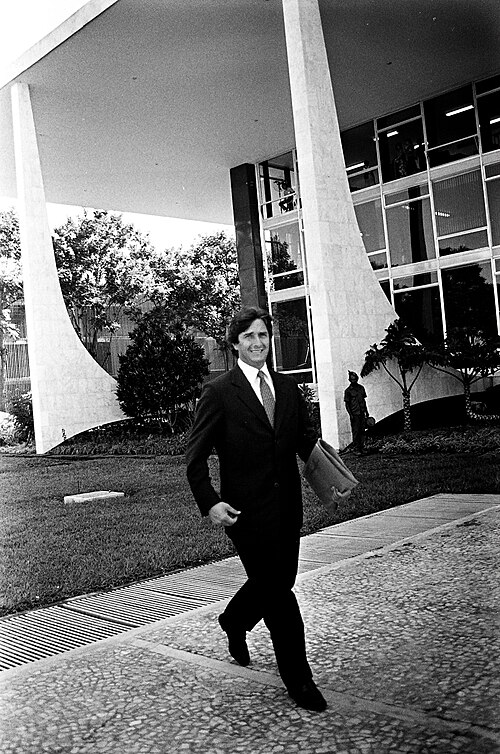
Parade of dweebs
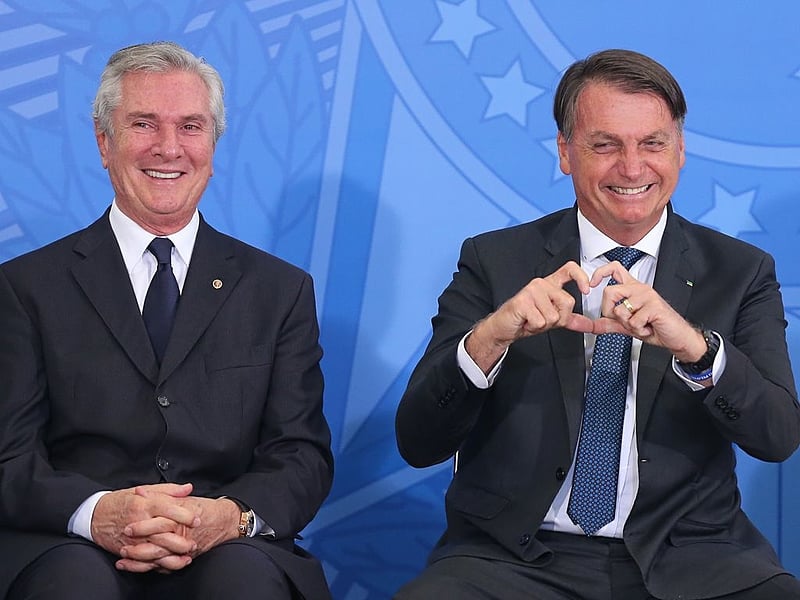
Collor de Mello sitting with a BFF, Jair Bolsonaro, AKA "Trump of the Tropics"
Profile Information
Member since: 2002Number of posts: 163,735